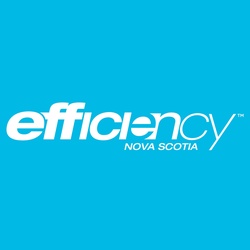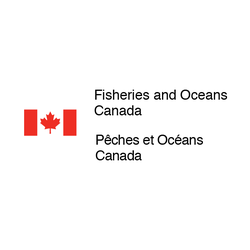
Closed
Organic Certification Rebate Program
Last Update: October 27, 2025
NS, Canada
Funding to help farms become certified organic
Grant and Funding
At a glance
Funding available
Financing goals
Reduce the ecological footprint
Eligible Funding
- Maximum amount : 750 $
- Up to 50% of project cost
Timeline
- Open Date : September 1, 2023
- Closing date : February 14, 2024
Eligible candidates
Eligible Industries
- Agriculture, forestry, fishing and hunting
Location
- Nova Scotia
Legal structures
- For-profit business
- Sole proprietorship
Annual revenue
- All revenue ranges
Organisation size
- All organization sizes
Audience
- Indigenous Peoples
- Persons with Disabilities
- Other Racialized Persons
- Black Canadians
- Rural or Northern Residents
- 2SLGBTQI+
- Canadians
- Youth (<40)
- Women
Overview
Get up to $750 to cover up to 50% of eligible expenses to encourage your farm to become certified organic and to support those who have already made the changes needed to be a certified organic farm.
Activities funded
- Obtaining organic certification for farms through a third-party certification body.
- Transitioning to certified organic status over a period of up to three years.
Examples of admissible projects:
$ 750
Purchase of organic seeds and certification for an urban farm
$ 750
Consultation services for transitioning to organic farming at Maple Leaf Farm
$ 600
Inspection fees for annual organic certification of a dairy farm
Eligibility
- The applicant must be a farm or a Mi'kmaq individual conducting farming activities in a Mi'kmaw community.
- The farm must be registered under the Farm Registration Act.
- The applicant must be at least 19 years old and actively farming during the program year.
- The applicant must be a resident of Nova Scotia.
- The farm must be certified organic in Nova Scotia at the time of application, or in the process of transitioning to certified organic status.
Who is eligible?
- Farms registered under the Farm Registration Act in Nova Scotia
- Mi'kmaq individuals or groups conducting farming activities in Mi'kmaw communities in Nova Scotia
Who is not eligible
- Companies that are not farms or not Mi’kmaq conducting farming activities in Mi’kmaw communities.
- Farms not registered under the Farm Registration Act.
- Companies or organizations that do not conduct farming as their main activity.
Eligible expenses
- Organic certification fees for farms currently certified organic.
- Organic certification fees for up to three transition years for farms transitioning to certified organic.
Eligible geographic areas
- Farms and Mi'kmaq in Nova Scotia
- Mi'kmaw communities in Nova Scotia
Selection criteria
- Applications are reviewed as they are received by the Department of Agriculture.
- Approval of applications is subject to availability of program funding.
- The Department of Agriculture may limit the total funding awarded to ensure broader access among applicants.
- The Department has the authority to deny applications that do not meet program requirements or where misrepresentation is found.
How to apply
1
Ensure you meet the eligibility criteria for the Organic Certification Rebate Program:
- Be a farm or Mi'kmaq conducting farming activities in a Mi'kmaw community.
- Be registered in the correct income category under the Farm Registration Act.
- Be at least 19 years old and actively farming in the program year.
- Be certified organic at the time you apply.
2
Review the Program Guidelines for detailed information on eligibility and requirements.
3
Check the program opening and application deadline dates to ensure timely submission.
4
Prepare all necessary documentation and information for your application.
5
Contact the Department of Agriculture Programs Division for any additional assistance or clarification.
6
Submit your application before the specified deadline.
Additional information
- An applicant is permitted to submit only one application per year for this program.
- No payment will be issued for claims under $20.00.
- Applicants new to Programs since 2023 must complete a Program Funding Registration form; returning applicants need to update their information as needed.
- The program may be modified or discontinued in future years depending on budget, industry feedback, and government priorities.
Contacts
prm@novascotia.ca
902-893-6377
NS, Canada
Apply to this program
Frequently Asked Questions about the Organic Certification Rebate Program Program
Here are answers to the most common questions about the Organic Certification Rebate Program. This section explains what the program is, how much funding is available, eligibility requirements, application deadlines, and other important details to help you determine if this grant is right for your business.
What is the Organic Certification Rebate Program?
How much funding can be received?
What is the deadline to apply?
Who is eligible for the Organic Certification Rebate Program program?
What expenses are eligible under Organic Certification Rebate Program?
Who can I contact for more information about the Organic Certification Rebate Program?
Where is the Organic Certification Rebate Program available?
Apply to this program
More programs like this

Loans and Capital investmentsOpen
Efficiency Nova Scotia — Small Business Energy Solutions
Efficiency Nova ScotiaRebates and financing for small business energy upgrades

Grant and FundingOpen
Atlantic Fisheries Fund – Atlantic innovation, infrastructure or science partnerships funding
Fisheries and Oceans Canada (DFO)Funding for innovation, infrastructure and science projects in the Atlantic

Grant and FundingLoans and Capital investmentsarchived
Aboriginal Business Loans — Youth and Womens Loans
UlnoowegLoans for Indigenous youth and women entrepreneurs in Atlantic Canada

Grant and FundingClosed
Efficiency Nova Scotia — Beneficial Management Practices Program
Efficiency Nova ScotiaSupports Nova Scotian farms adopting sustainable energy-efficient practices

Grant and FundingClosed
Invest Nova Scotia — Greenshoots
Government of Nova ScotiaFunding for early-stage businesses in Nova Scotia

Grant and FundingOpenClosing Soon
Nova Scotia Seafood Innovation and Technology Adoption Program (NS-ITAP)
Perennia Food and Agriculture CorporationNon-repayable funding for Nova Scotia seafood innovation enhancements

Grant and FundingOpen
Seafood Accelerator Program — Market Access Food Safety Program
Perennia Food and Agriculture CorporationSupports overcoming food safety barriers for market access

Grant and FundingClosed
Value-adding Equipment Program
Government of Nova ScotiaFunding for agricultural and agri-food businesses in Nova Scotia

Grant and FundingClosed
Plant Your Roots Program — Commercial Farm Purchases
Government of Nova ScotiaFunding for new commercial farming in Nova Scotia

Grant and FundingClosed
Plant Your Roots Program — New Entrant
Government of Nova ScotiaFunding for new commercial farming in Nova Scotia
Sign up to our platform to access the Organic Certification Rebate Program information sheet for free
Get access to 4,000+ programs, practical guides, personalized alerts, and an AI assistant to support your grant applications.